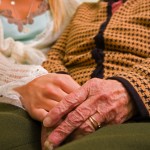
The PEARLS Program is a team-based approach, involving counsellors, psychiatrists and medical providers, designed to reduce depressive symptoms and improve quality of life in adults with epilepsy. It was developed by a team at the University of Washington and has been studied through two randomised controlled trials, the second of which measures the long-term benefits of the intervention.
The program consists of problem-solving treatment, behavioral activation, and psychiatric consultation, in individuals with epilepsy, delivered in the client’s home.
In this trial, 80 patients were randomly assigned to PEARLS or usual care, and assessed at baseline and 6, 12, and 18 months.
Patients who received the PEARLS treatment did better on three main outcomes measurements (over 18 months) than the patients who received usual care:
- Lower depression severity (P<0.05) (Hopkins Symptoms Checklist-20)
- Lower suicidal ideation (P<0.02)
- Better emotional well being (QOLIE-31) (P<0.02) over 18 months
The research team concluded that:
The PEARLS program significantly reduces depressive symptoms in adults with epilepsy, and this effect is maintained for 18 months after baseline and for more than 1 year after completion of home visits.
Chaytor N, Ciechanowski P, Miller JW, Fraser R, Russo J, Unutzer J, Gilliam F. Long-term outcomes from the PEARLS randomized trial for the treatment of depression in patients with epilepsy. Epilepsy Behav. 2011 Mar;20(3):545-9. Epub 2011 Feb 18. [PubMed abstract]
